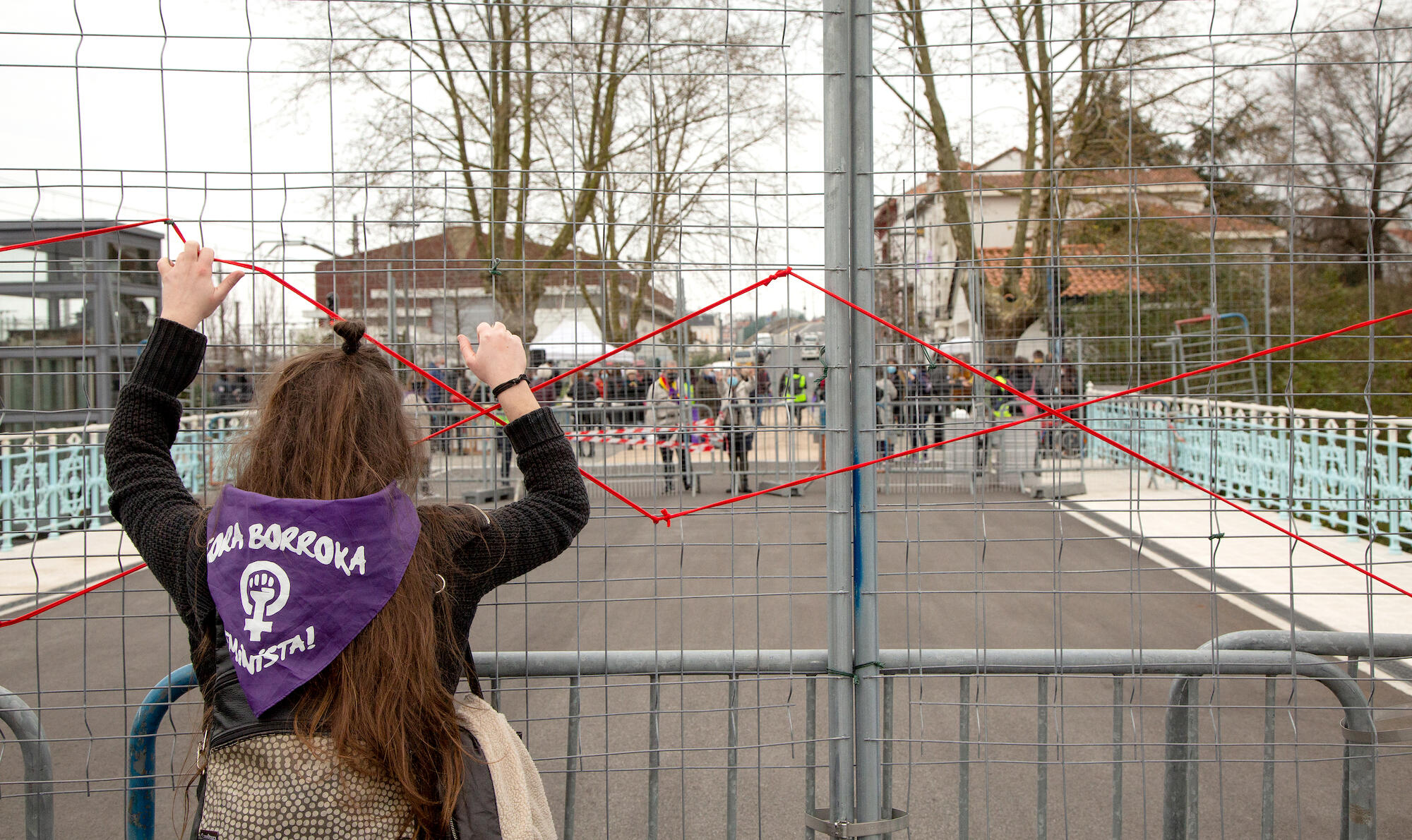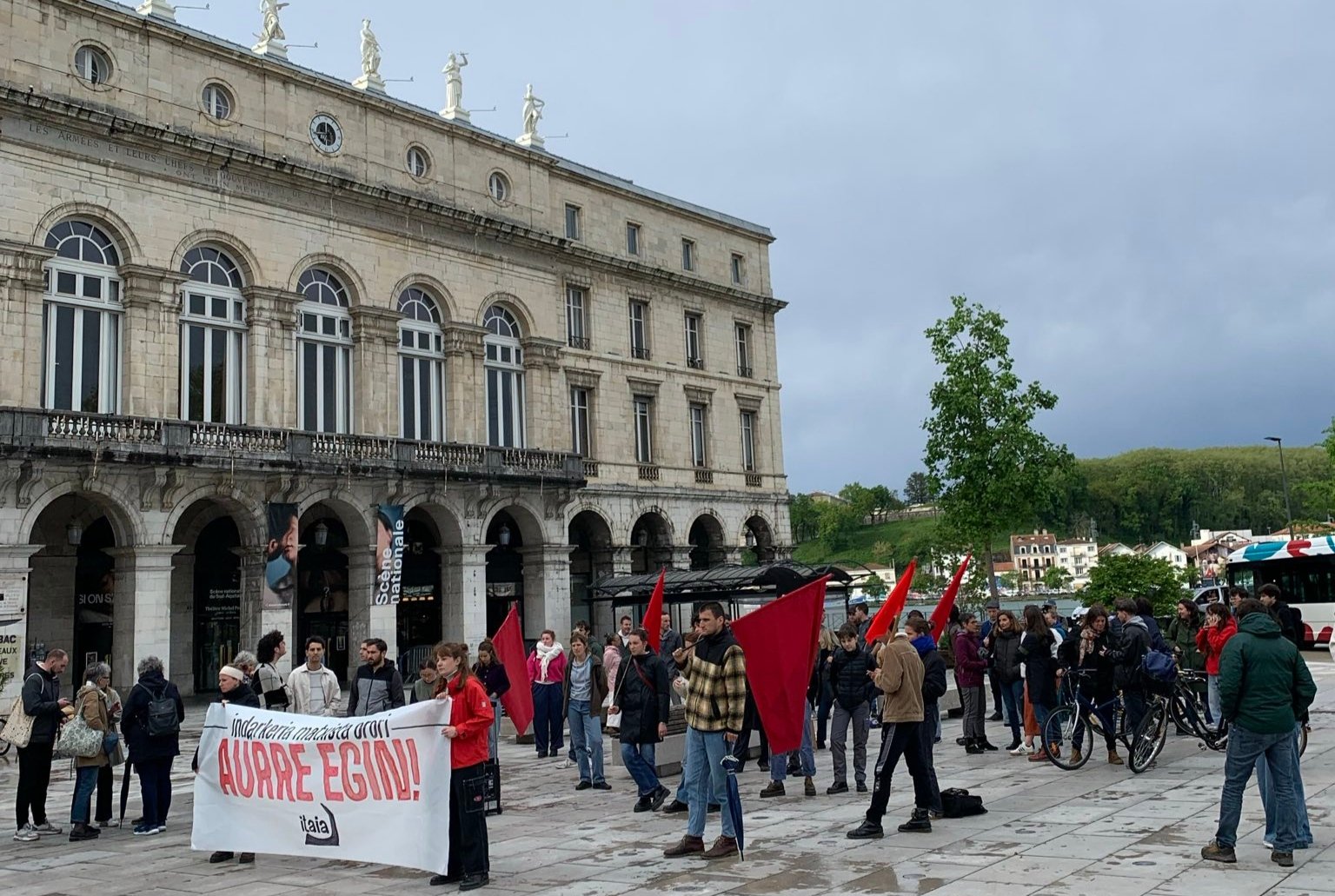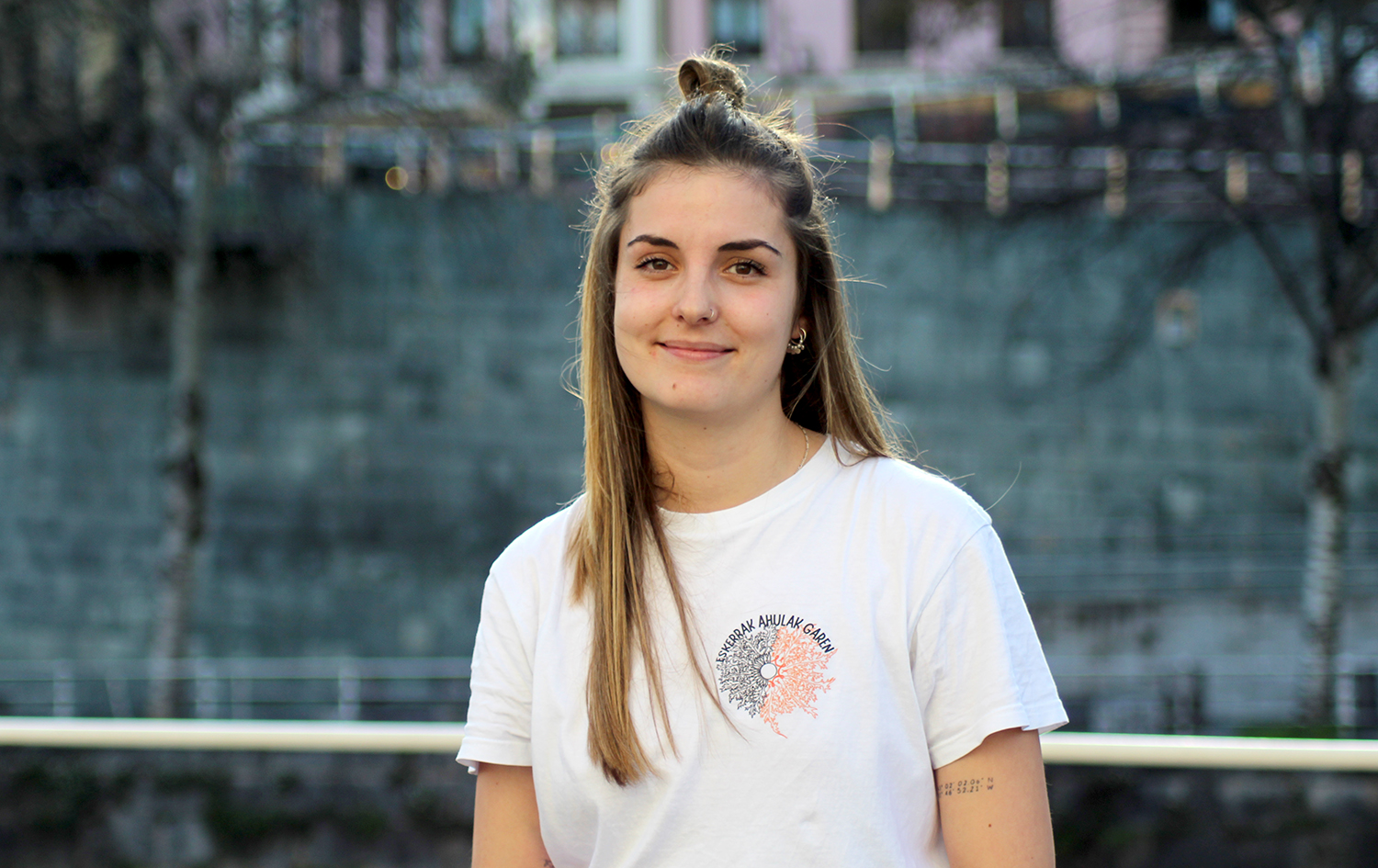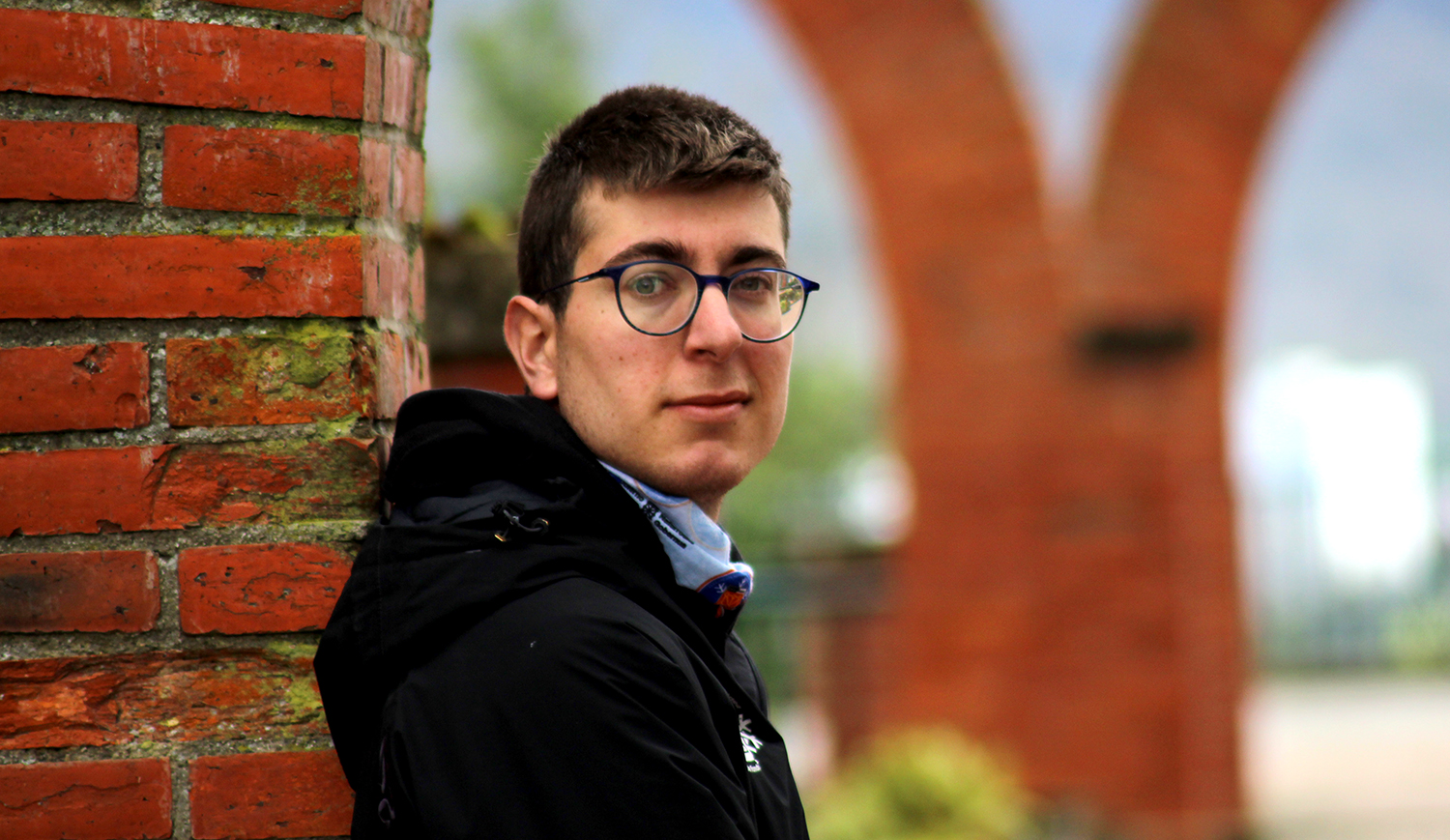Feminist alternatives, underway from Kurdistan to Portugal
- “We will keep going until we are all free.” That is the goal of the World Women's March, the liberation of women. He departed from Kurdistan on 8 March and will arrive in Portugal on 17 October.
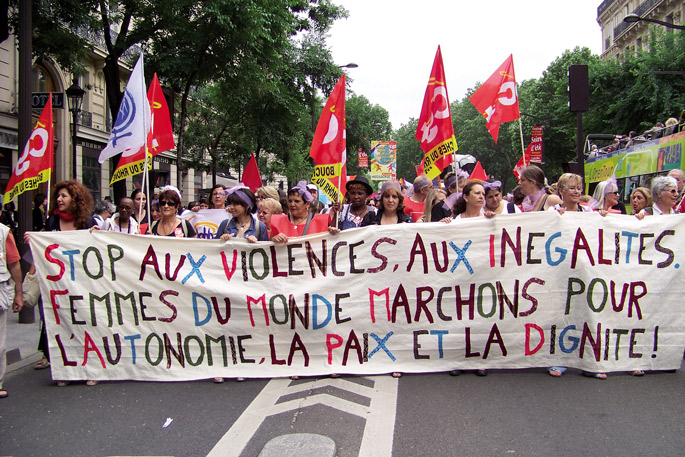
It is not easy to launch the world in the same direction, but since 1995 the World Women ' s March has achieved this every five years. The first caravan in Quebec, Canada, was the Pan and Larrosa March, involving over 15,000 people. It has not rained much since that time. On the contrary, the World Women ' s March was held for the first time in 2000 to claim democracy, hope, equality and peace.
Vania Martins and Ximena Mriel are coordinators of Portugal and Galicia and believe that the March is the internationalization of personal struggles. “It’s a shared revelation for me to share the fight against violence and capitalism with other women,” says Martins.
Dimension of the movement
More than 5,000 bands will be participating in 163 countries. Diverse women, united by the same struggle. Every five years they go on the road to build feminist alternatives from country to country.
Various activities are organized around the world under the guise of the World March. In Portugal, for example, discussion forums and presentations of the project have been held, and they have been very welcome. In the words of his coordinator, many women have participated in the organization of the event of the end of the March: “In Porto, for example – where the March has two days – a group of women is organizing a feminist festival to welcome the caravan. In Coinbra it happens in the same way, a group of women who are organizing everything, and in Lisbon – where the last event is to be held – many women have been mobilised to organise the three days that the March will last”.
“With feminism, daily work and the construction of alternatives we have shown that it is possible to create a different world; we have already begun to work,” says Mriel. In his words, when you realize that the fight against violence and capitalism is the same in the people of Mapuche, in Palestine, in the Philippines, in Canada, in the Basque Country and in Cuba, and when you see that the unity offers a “great revolutionary power”, you cannot stop working for it. “We do so by thousands of women from every corner of the world every five years; we have joined our voices in international action and this year we will also do so.”
Feminist alternative
Joana Aurrekoetxea is a member of the Basque Country Herriko Bilgune Feminist and was in Kurdistan at the beginning of the March: “In short, the passion for transforming this world unites us. Social justice is at the heart of our demands and we see that in this matter women and generally feminist subjects are the key”. However, she believes that women who participate in the March also have particularities, “they differentiate us from beliefs, stories, names, customs, etc. This differentiates us and enriches us at the same time, although it must be acknowledged that this sometimes makes collaboration more complex. However, we live any consensus, any progress as a great achievement.”
Martins explained that there are many demands of the March, “local realities must also be taken into account”. However, Portuguese considers that there are four main demands linked to several lines of work: common welfare and public services; food sovereignty; sustainable production and cultivation; women’s right to food, drink, land, housing, knowledge and education; the right to public health or energy services; peace and demilitarization; economic sovereignty; and violence against women.
First steps of the march
The first march kicked off with the well-stocked backpack of demands. These were two issues that feminists around the world agree on: poverty and sexist violence. But not only were these issues addressed, but there was also training and the need for an education plan, and the desire to activate feminist awareness. On the other hand, a more strategic goal was established: to create a global feminist network that would act globally and locally.
From the very beginning, the World Women's March had a huge echo. In 2000, he left Quebec and Geneva and ended up in New York. That year he did not tour the Basque lands as he did this year, but he also echoed here, between 17 June and 7 October, when the March lasted, activities such as the theatre, the day of the writers and the national demonstration in San Sebastian were organized.
Marches were also organised from different parts of Europe to Brussels, as well as from Euskal Herria, to support European mobilisation. Given the impact and impact, it was decided to undertake a major global action every five years.
Over a hundred countries are participating in the World Women’s March and organizing this kind of movement is not easy: “It’s both complex and wonderful,” Mriel said. “The march is the sum of the national coordinations, which are organized at the local, regional, national and international levels,” explains Martins. In the case of Portugal, those who work as coordinators not only work on the March, but also work in other associations, such as anti-racism movements and evictions.
Things to do in Euskal Herria
On September 28, Catalonia passes the witness and the caravan enters Tafalla. Crossing Navarre, Ipar Euskal Herria, Gipuzkoa, Araba and Bizkaia will continue their journey to Galicia. The last event will take place in Bilbao on 4 October.
Conversely, in areas not covered by the caravan, a number of activities will also be organised to achieve the greatest possible impact. This is what the World Women’s March in Euskal Herria seeks: a plural women’s movement. The group consists of women who work in different areas: feminist militancy, agriculture, unionism, education, migration, lesbianism, functional diversity…
It is not the first time that the World March has travelled to Basque lands. In order to support international action, a specific objective was set in place in the Basque Country in 2003: Based on the World Charter, an open, people-to-people debate was held to create the Charter of the Rights of Women of the Basque Country. In 2005, the March was very successful and during five days several purple buses invaded several locations in the Basque Country. In 2010, the following March was held, which was not so successful: “It had a slight decrease, but our goal this year is to strengthen the March,” explains Josebe Iturrioz, of the World March.
Kurdistan, Grezia, Balkanak, Italia, Suitza, Frantzia, Belgika, Alemania, Polonia, Hungaria, Austria, Katalunia, Euskal Herria, Galizia, Portugal.
Euskal Herrian zeharkatuko dituen herriak:
Irailak 28
Tafalla, Gares, Iruñea.
Irailak 29
Sakana, Leitza, Baztan, Hazparne.
Irailak 30
Baiona, Hondarribia, Donostia.
Urriak 1
Errenteria, Zumaia, Hernani, Tolosa.
Urriak 2
Beasain, Bergara, Agurain, Gasteiz.
Urriak 3
Durango, Gernika, Igorre, Basauri.
Urriak 4
Portugalete, Getxo, Bilbo.
Sinbolismo handia du Mundu Martxak; bizi eredu baten ispilu izan nahi du, jaiotzen ari den aldaketa baten erreferente. Hori dela eta, munduan zehar landaketak egin dituzte martxari babesa adierazteko: “Haziarena feminismoa landatzeko modu metaforikoa izan da. Herri eta hirietako espazio publikoetan zein pribatuetan landatu nahi ditugu haziak”, adierazi du Josebe Iturriozek. Bizitzaren jasangarritasuna eta lurraren eta gorputzaren arteko loturak irudikatu nahi dituzte, “pentsamendu indigenetan du oinarria; urteetan lurra bortxatua izan da emakumea bortxatua izan den era berean”, azaldu du. Argi du Joana Aurrekoetxeak: “Bideetan haziak ereinez mundu osoko aldarrikapen feministak noizbait loratuko diren itxaropenez jarraituko dugu aurrera bidean”.
Errepikatu nirekin: Sara Millerey. Ez dezagun ahaztu bere izena. Transfeminizidioaren biktima da Millerey: gorrototzaile transmisogino batek torturatu zuen, besoak moztu zizkion eta bizirik bota zuen ibaiertz batera. Bi orduko agoniaren ondoren hil zen.
Errazagoa da J.K... [+]
Many Basque feminists have been disappointed to learn that writer Chimamanda Ngozi Adichie has externalized pregnancy, meaning that a surrogate has fertilized her baby for money.Adichie is the author of the essay We should all be feminists, among others. They have ignored the... [+]
Indartsua, irribarretsua eta oso langilea. Helburu pila bat ditu esku artean, eta ideia bat okurritzen zaionean buru-belarri aritzen da horretan. Horiek dira Ainhoa Jungitu (Urduña, Bizkaia, 1998) deskribatzen duten zenbait ezaugarri. 2023an esklerosi anizkoitza... [+]
Gozamen aparta bezain deskribatzeko zaila dakar, norbaiten hitzak irakurri edo entzun ostean, zera pentsatzeak: “Horixe zen neu aurreko hartan azaltzen saiatu nintzena!”. Idazlea eta itzultzailea da María Reimóndez, eta galegoz aritzen da, hizkuntza... [+]
Orain arte desgaituak ez diren pertsonekin lehiatu da Uharteko Ipar Eski Taldeko Eneko Leyun eskiatzailea (Iruñea, 1998). 2024-2025 denboraldian, lehenengo aldiz parte hartu du Adimen Urritasuna duten Pertsonentzako Iraupeneko Eskiko Espainiako Txapelketan. Urrezko... [+]
Joan den urte hondarrean atera da L'affaire Ange Soleil, le dépeceur d'Aubervilliers (Ange Soleil afera, Aubervilliers-ko puskatzailea) eleberria, Christelle Lozère-k idatzia. Lozère da artearen historiako irakasle bakarra Antilletako... [+]











